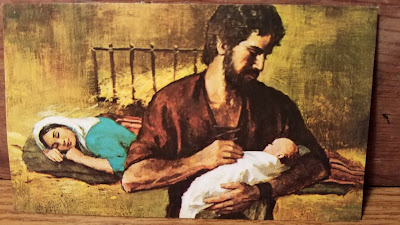Dear Friends,
Today’s Scriptural readings are about lepers. In Leviticus,
the leper was quarantined not for the individual’s sake but that the purity of
the community be preserved at all costs, even at the cost of excluding the
leper from the love and support of family and friends. We can contrast the
legalism of Leviticus with the human drama of the Gospel. Jesus, whose
reputation must have been far reaching and great, inspired the unclean person
to come to him and say:
If you will to do so, you can make me clean.
The leper knew what he himself could do and what he was not
permitted to do. Yet he stepped out of his required role to approach Jesus.
Jesus, we read, was touched – not superficially – but in his innermost parts.
Jesus touched this man whom society declared untouchable. He offered inclusion
and healing in contrast to the community that offered only exclusion and
condemnation.
The importance of what Jesus did becomes clear to us at the
end of the story, where Jesus, in effect, trades places with the leper. Jesus,
because of his compassion, was not able to show himself in any town He was
ostracized – unwelcome as any leper would be.
As in the Book of Leviticus, people in our times also divide
the world into the clean and unclean, the pure and the impure, the included and
the excluded. That’s the stuff of the insurrection at the Capitol on January 6;
the stuff of family break-ups; of class struggles. Today’s lepers are any and
all people who experience discrimination, alienation, prejudice and rejection.
Is there a leper in you and in me? Is there a part of
ourselves we consider untouchable, unclean? A part of me that the rest of me
avoids? Is there something in my heart that I don’t want to look at – fear,
shame, humiliation, an unwillingness to forgive myself, painful or scarring
memories?
How easy it is to slump down in some private dump and feel
the situation is hopeless. We can brood over our inadequacies and failings,
allow ourselves to fall before the demons of discouragement or we can allow
Jesus to get close enough to the leper in me to say:
Of course, I want to heal you.
The significant thing about the leper in the Gospel is that
he dared to hope. Because of that hope, he got up and did something in pursuit
of the seemingly impossible.
Wednesday, we begin Lent, and each of us has a decision to
make. Will it be a season ignored or half-attended to or will it be a time to
face the leper in us as individuals, group or nation?
If we try, Lent can be for us a time of courage – a time to
come before Jesus and say:
If you will to do so, you can make me clean.
Let him be our guide this Lent as we try to welcome the
leper and others in ourselves. Then Easter can be unlike any other we have
known.
~Sister Joan Sobala






